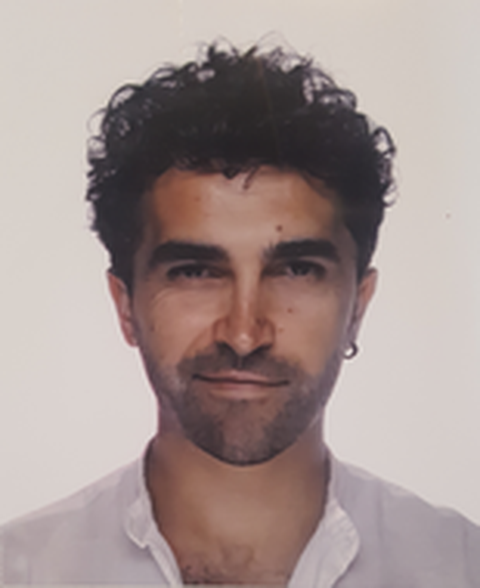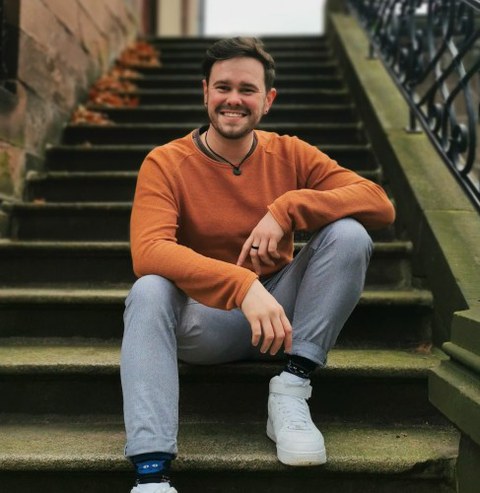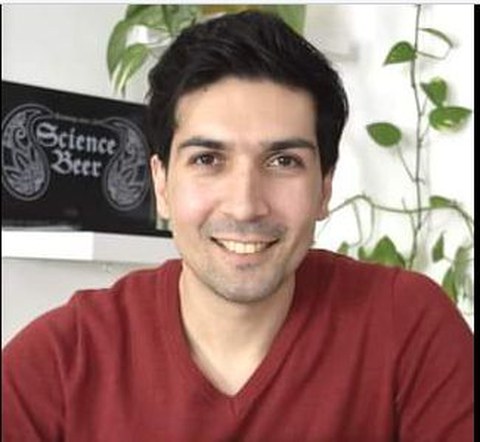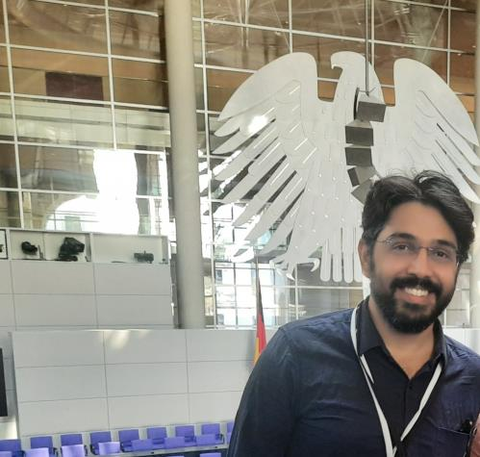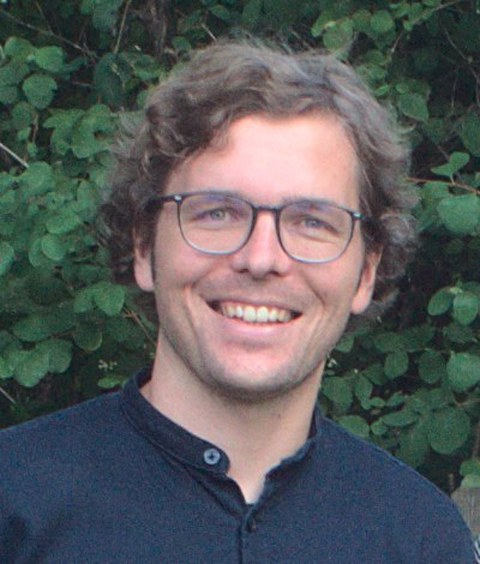Members 2025
| Dr. Ismail Bayram | Chair of Psychology of Learning and Instruction, Technische Universität Dresden |
| Dr. Samuel Cosper | Chair of Lifespan Developmental Neuroscience, Technische Universität Dresden |
| Dr. Siavash Ghiasvand | Center for Information Services and High Performance Computing (ZIH), Technische Universität Dresden |
| Dr. Mangesh D. Ratolikar | Chair of Construction Machinery, TUD Dresden University of Technology |
| Dr. Martin Zwanzig | Chair of Forest Biometrics and Systems Analysis, Technische Universität Dresden |
Dr. Ismail Bayram
Chair of Psychology of Learning and Instruction,
TUD Dresden University of Technology
I am a postdoctoral researcher at the Chair of Psychology of Learning and Instruction and the Centre for Tactile Internet with Human-in-the-Loop (CeTI) at Technische Universität Dresden (TUD). My research focuses on multi-sensory behavioral experiments to investigate sensory-motor skill acquisition and development, particularly exploring how different types of interventions and feedback influence the skill learning process. As a current member of the Postdoc Council of the Graduate Academy, I have actively organized PostdocMEETs and participated in various events. These experiences have deepened my understanding of the challenges faced by postdoctoral researchers and have motivated me to further expand my involvement and impact by nominating myself for another term as a Postdoc Council representative. I am committed to addressing the needs of new postdocs and believe that my background and enthusiasm will enable me to contribute effectively to the council. I am eager to collaborate with fellow postdocs to develop solutions that enhance the postdoctoral experience at TUD.
Dr. Samuel Cosper
Chair of Lifespan Developmental Neuroscience,
TUD Dresden University of Technology
My name is Dr. Samuel Cosper and I have been a postdoctoral researcher in Lifespan Developmental Neuroscience within the Faculty of Psychology since Sept. of 2022 and the deputy speaker of the Postdoc Council since 2023 and the speaker since 2024. Additionally, I am the co-speaker of the German Network of Postdoc Representations (NetPDR) from 2025-2026. My motivation for becoming a Postdoc Representative is to further postdoc skill development both scientifically and in terms of networking and important social and organizational skills required in academia. I also am a proponent of active representation and transparency. Not only do I want to represent my own thoughts, goals, and opinions, but I want the goals, opinions, thoughts, and wishes of others to be represented. For transparency, I believe it is difficult enough to navigate academia, including both staying in academia or leaving academia. I would like to assist others in understanding the academic system, understanding the qualification period for postdocs, being able to work effectively within the system, as well as have knowledge of other options. I find this especially important or international postdocs. Being an international member of the TUD who has lived and worked in Germany for over a decade, I feel I have a unique opportunity to interpret information and share it in an understanding manner for those who do not know the system as well. Only by working together can we strive to understand the current system and bring our voices together to suggest changes to make things better. I would like to be a part of that. Our academic community is a strong community which relies on sharing information, experiences, and problems. Together, we can help each other and take a step towards achieving our collective and individual goals.
Dr. Siavash Ghiasvand
Center for Information Services and High Performance Computing (ZIH),
TUD Dresden University of Technology
In 2015, a wonderful team of PhD students and I established the “DDocs”, the first GA Doctoral Council of TU Dresden. DDocs
was born to support all PhD students during this amazing (but sometimes frustrating) path. Doing so, I learned a lot, gained colourful experiences and greatly expanded my circle of friends. I remained an active member of DDocs and was honored to be elected in all following elections until accomplishing my PhD in 2020. Since 2023, I had the opportunity again to collect more
experiences in the Postdoc Council, get to know further talented people, and share all my experiences from the past years.
Dr. Mangesh D. Ratolikar
Chair of Construction Machinery,
TUD Dresden University of Technology
I am Mangesh, a research associate at the Chair of Construction Machinery at TU Dresden. As a postdoc myself, I understand the challenges many of us face. Firstly, many postdocs deal with limited job security and career uncertainty due to short-term contracts. This instability can make long-term planning difficult and stressful. In addition, there is often a lack of structured career support — few clear pathways or guidance exist to help postdocs navigate their next steps in academia or beyond. Secondly, isolation is a common struggle. Postdocs can feel disconnected from both peers and senior researchers, which is often made worse by a lack of community spaces or networking opportunities. Building a stronger, more inclusive postdoc network is one of my top priorities. Thirdly, international researchers face unique challenges, including visa-related bureaucracy, uncertainty around residency, and the difficulty of adjusting to new academic, cultural, and social environments. These issues can significantly affect well-being and professional productivity. I’ve experienced many of these difficulties myself, and I’m dedicated to working toward practical solutions and advocating for better support structures. I'm looking forward to collaborating with all of you to create a more connected, supportive, and empowering postdoc community.
Dr. Martin Zwanzig
Chair of Forest Biometrics and Systems Analysis,
TUD Dresden University of Technology
I work as a postdoc at the Chair of Forest Biometry and Systems Analysis at TUD since 2019. My activities include teaching and research with a focus on individual-based ecology and modelling. I have been a member of the postdoc council since 2022 and acted as spokesperson from 2022 to 2024. I was able to gain experience in committee work there as well as during my two-year term as a postdoc representative on the advisory board of the German University Association of Advanced Graduate Training (GUAT), a network of 87 universities/institutions. I am therefore familiar with the challenges and perspectives of postdocs at various institutions. One of my goals is to consolidate contact with other postdoc representations in Germany via the NetPDR, our newly founded Network of Postdoc Representations, and to exchange ideas with them, both on the organisation and scope for action of postdoc representations and on the support services and prospects for postdocs at the respective institutions. I hope that this will also provide new impetus for TU Dresden. As the father of four children and the husband of a woman doing her doctorate at TU Dresden, I am familiar with the challenges that scientists in early career phases face in balancing work and family life. I would be delighted to be able to continue to contribute all this experience and perspective as a member of the TUD Postdoc Council.


